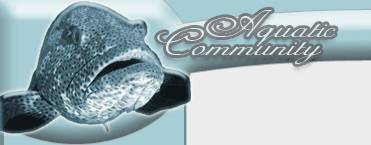Marine aquariums: Nitrates
Nitrifying bacteria or nitrobacters are produced in the last phase of the nitrogen cycle. The nitrogen cycle is essential for the health of any aquarium. Nitrates are the wastes produced by these nitrifying bacteria. Bacterial breakdown of Ammonia turns it into nitrates.
Nitrates can be very harmful for the aquatic life within your tank. Many marine plants and algae feed on nitrates. So, nitrates are the leading cause of an algae bloom within any aquarium. Although less toxic that Ammonia and nitrites, nitrates can lead to stress. This is because increase nitrate levels make the fishs internal organs work harder. Stress causes disease and death. High levels of nitrates adversely affect the health of the fish living inside the tank. High nitrate levels are generally the direct result of poor tank and water maintenance.
It is generally said that if a kit can detect nitrate levels in the tank, then the levels are too high. 10 to 40 ppm is an acceptable range for most fish types. Although there may be tanks that run efficiently even at higher nitrate levels, elevated nitrate levels are not recommended. Extremely severe stress can be found when the concentration reaches 60 ppm. Most plants will die off before nitrates reach this level. This results in a depletion of oxygen. In a reef tank, higher nitrate levels will adversely affect the delicate corals, sea anemones and any other invertebrates. Higher nitrate levels also easily affect some crustaceans. So, reef tanks can withstand .225 ppm of nitrate levels only.
Nitrates are natural by-products in aquariums. Many times, while topping off water that has been lost due to evaporation, unpurified water from taps finds it way to the tank. This water may contain nitrates. So, while changing water, instead of the nitrate level coming down, these levels inadvertently shoot up. Filtering tap water and treating it before introducing it into an aquarium is the best way to ensure water quality.
There are certain symptoms that can caution one against the rise of nitrates in water. Small fish that have been newly introduced into your tank are the first to feel the impact of high nitrate levels. Lethargy in fish except during feeding times is an indicator. Slow growth of the fish and increased vulnerability to disease are other indicators. If your fish have redness or have sores, these too will heal very slowly if nitrate levels are high. Red patches on the body also indicate high nitrate levels in water.
Aquarists use several methods to curtail the rise of nitrate levels. Using mangrove plants within the aquarium is one such tried and tested technique. This is a natural way to keep nitrate levels down. Ecologically correct and effective, mangroves actually thrive in salt water. They feed on organics and nitrates found in water. Denitrifying filters are another choice. They make the nitrifying bacteria do the hard work. Water flows slowly through a chamber that contains a medium that can grow bacteria. When the water comes out, it is purer.
Using live rocks or live sand or a combination of the two are effective methods. Other options include using coil, flat block and other such denitrators. Though this equipment is more expensive, they are also very effective. Care must be taken to be regulate equipments properly before using. Using compounds that lower nitrates is the simplest method.
Water changes are also effective in keeping the nitrate levels within control. But this does not work if the nitrate levels are too high. Depending upon the level of nitrates in the tank, a proper filtering system can be adopted.
Didn't find the info you were looking for? Register for free and ask your question in our Aquarium forum !
Related Articles
Marine aquariums: Ammonia - an introduction to Ammonia in marine aquariums.
Marine Aquariums: pH and Alkalinity - Introduction to pH and Alkalinity in marine aquariums.
Saltwater aquarium setup - An introduction to marine aquariums for beginners.
